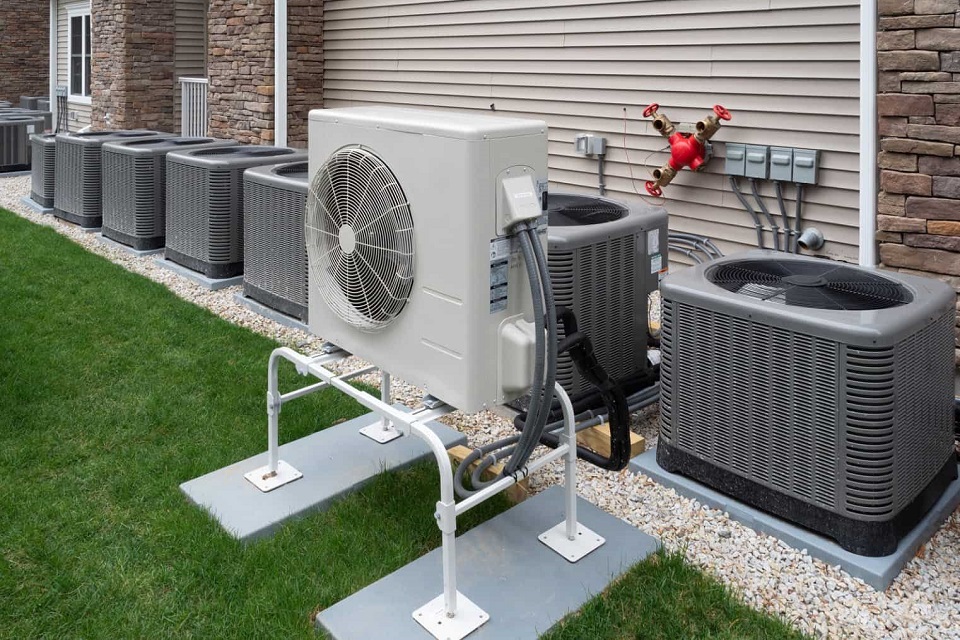As energy prices increase and environmental concerns grow, homeowners seek ways to decrease the amount of electricity and gas consumed within their homes. Hybrid HVAC systems provide one such means without investing in new appliances or making significant lifestyle adjustments.
These systems consist of both an electrical heat pump and a furnace that uses propane, fuel oil or natural gas as their source. A thermostat or control system then switches between these units depending on temperature and season.
You can visit this site to learn about hybrid HVAC systems and to request a high-quality repair for your heating unit.
Dual Fuel Hybrid Systems
Hybrid heat systems may be an excellent solution if you live in an area with mild winter temperatures. This HVAC system combines an air-source heat pump powered by electricity with a gas furnace to meet more extreme temperature needs.
At moderate outdoor temperatures and off-peak times, heat pumps provide efficient yet cost-efficient heating options that are less expensive than natural gas. However, when outdoor temperatures decrease further, the system automatically switches over to use its auxiliary gas furnace.
Not only can hybrid systems reduce energy costs, they can also decrease greenhouse gas emissions (GHG). A study by researchers at CanmetENERGY-Ottawa discovered that hybrid systems using smart switching controls reduced GHG by 30 percent compared to traditional natural gas furnaces.
For more information about this option that helps lower both your carbon footprint and utility bills simultaneously, speak to your professional licensed HVAC dealer; they’re sure to find you the perfect combination of systems that meets your requirements.
Dual Fuel Hybrid Furnace
Dual fuel hybrid systems combine an electric heat pump and natural gas furnace. In the summertime, this combination acts as an air conditioner by drawing air in through filters into your home’s ductwork before forcing it out through vents; during the winter, however, it reverses this process and draws warm air in through outside to provide gentle yet energy-efficient heating.
As soon as outdoor temperatures fall below a set point, the heat pump transitions to using gas as its primary heat source – helping reduce energy use and GHG emissions while still providing enough heat on colder days.
Dual Fuel Hybrid Air Conditioner
Dual fuel systems combine the energy effectiveness of an air source heat pump with the backup provided by a furnace to save money on both heating and cooling costs while being more eco-friendly due to reduced greenhouse gas emissions.
Hybrid HVAC systems are ideal for homes in colder climates, since heat pumps only offer limited heating when temperatures dip below freezing. When temperatures reach that threshold, however, this hybrid system switches to its furnace for efficient and dependable heat production.
Outdoor heat pump models differ slightly from their traditional counterparts in that they include gas or propane furnaces connected via copper lines, while their indoor counterparts run on natural, propane or fuel oil instead of electricity. Latent heat energy exists even at freezing temperatures outside; heat pumps harness it by drawing it in through air vents to heat homes instead.
Dual Fuel Hybrid Thermostat
Home and business owners looking to reduce energy costs while contributing towards a more eco-friendly environment will find our smart dual fuel thermostat an invaluable ally. It works seamlessly with either heat pumps or traditional furnaces and allows users to maximize energy cost savings based on external factors like electrical rates and weather conditions.
Dual fuel hybrid systems utilize an electric heat pump in warmer months to cool your home efficiently, then switch over to natural gas when temperatures turn colder for maximum heating efficiency.
Ideal for moderate to cold climates, dual-fuel HVAC systems offer the best of both worlds in one convenient heating and cooling unit. Composed of both a heat pump and a gas furnace, this unit automatically selects the most cost-efficient source of fuel based on temperature.
Typically the heat pump operates most efficiently during mild temperatures, while as the weather turns colder, it takes over as your primary heating source and lowers utility bills as you switch over from heat pumps.
